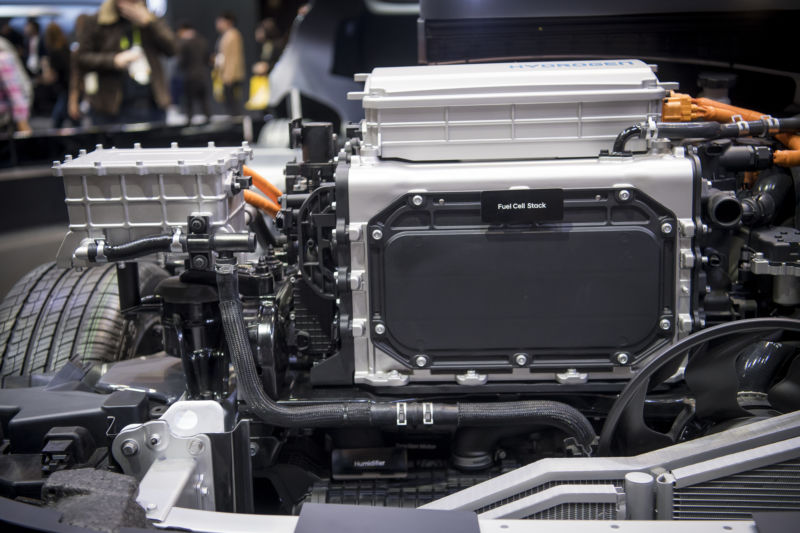[ad_1]

Enlarge / A fuel cell stack is displayed during the 2018 Consumer Electronics Show (CES) in Las Vegas, Nevada, on Thursday, Jan. 11, 2018. (credit: David Paul Morris/Bloomberg via Getty Images)
On Monday, automotive parts supplier Bosch announced that it would be partnering with a company called PowerCell to manufacture fuel cells for commercial and passenger vehicles.
Currently, there’s not a huge market for hydrogen fuel cells, but a number of automotive leaders believe that hydrogen, which can be transformed into electrical energy through fuel cell stacks, will play a significant role in the transportation of the future if we want to curb carbon emissions in the face of climate change.
PowerCell, a Sweden-based company spun-off from Volvo in 2008, has been building hydrogen fuel cell stacks for a decade. Bosch has also worked to supply makers of fuel cell stacks. Together, the companies will jointly develop a polymer-electrolyte membrane (PEM) fuel cell stack for mass-production by 2022. (Currently, PowerCell manually produces its fuel cells, and it hopes to move to semi-automatic manufacturing as a result of its partnership with Bosch.)
Read 9 remaining paragraphs | Comments
[ad_2]
Source link
Related Posts
- What to know about measles in the US as case count breaks record
- NASA to perform key test of the SLS rocket, necessitating a delay in its launch
- Fiber-guided atoms preserve quantum states—clocks, sensors to come
- Trump administration puts offshore drilling expansion in Arctic, Atlantic on ice
- Elon Musk reaches settlement in SEC tweet battle
